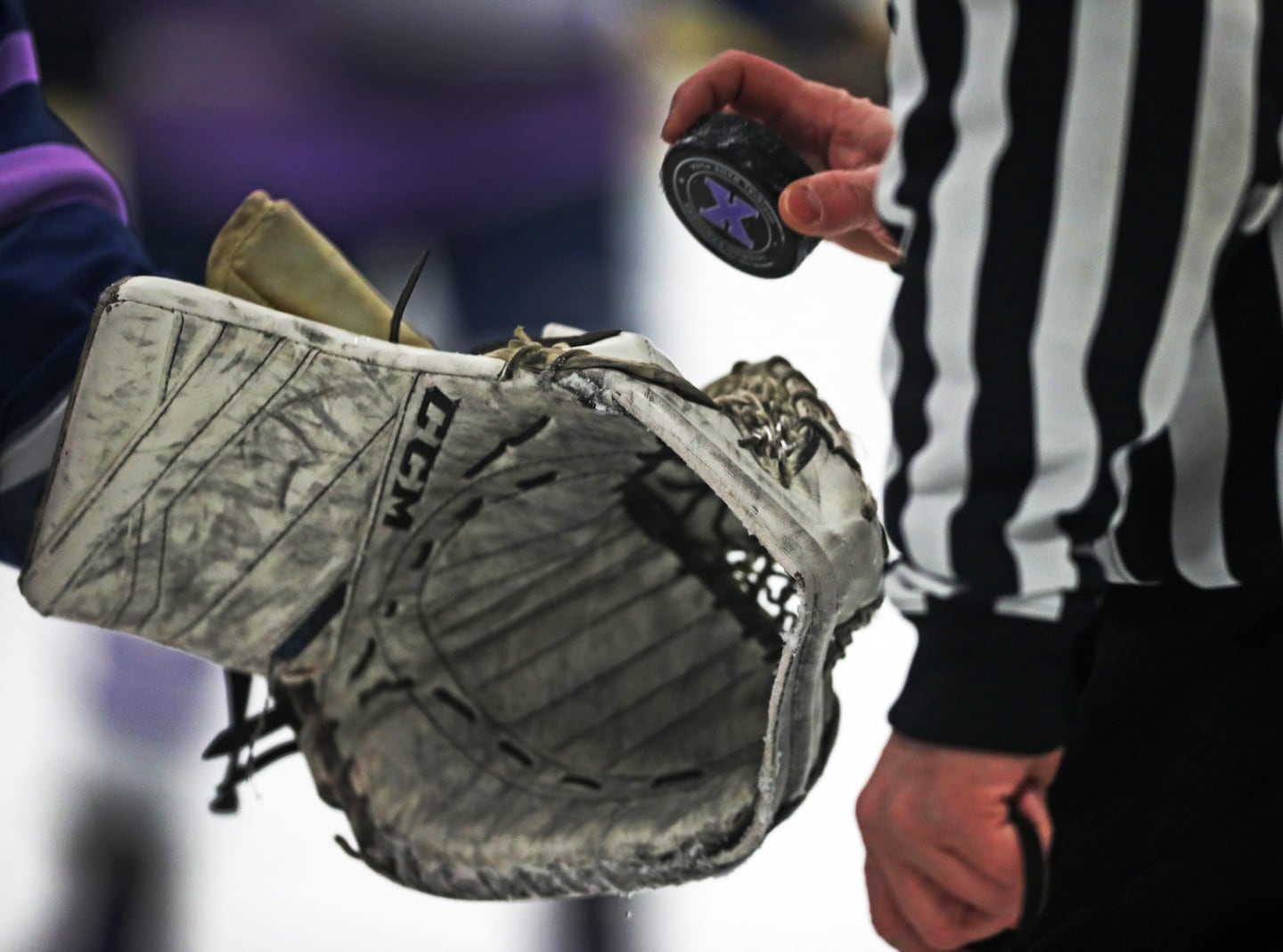On Wednesday, the MIAA finance committee conveyed to the board of directors its decision to institute a 7 percent pay increase for officials and referees of all MIAA sports for the 2026 fiscal year, which begins next September.
In ice hockey, that would mean an increase of $6.79 a game from the current $97 rate per varsity game.
That won’t cut it, the Massachusetts chapter of NIHOA said.
“This change will not move the needle in our recruitment and retention efforts for new officials,” the chapter said in a statement. “With the season just 52 days away, we now look to the leagues to make appropriate adjustments to the MIAA’s recommendations.”
Ice hockey officials are non-unionized independent contractors, which allows them a choice in which games they work. Currently, an abundant supply of USA Hockey games offer a pay rate of $105 that is a bit above next season’s bump from $97 to $103.79 a game. Officiating club hockey games, however, also usually comes with the bonus of being able to double a paycheck by working back-to-back games.
NIHOA has no desire to organize its members around a job action, said Mike Ober, a representative for the group.
Still, opting to work more lucrative non-MIAA games could, in essence, duplicate the impact of a walkout, especially in regions of the state such as the Berkshires and Cape Cod where officials are harder to find.
“There is extraordinary sensitivity across all of our officials not to impact the student-athlete experience and not cause games not to be played,” said Ober. “I hear that every day from the officials I’m talking everywhere. But officials are choosing to work elsewhere.”
Tom Arria, chair of the MIAA finance committee, said the decision for the pay bump was based on, “the cost of everything is going up, so it’s only right that we make sure we take care of all of our officials across the board.”
Arria, director of athletics at Cambridge Rindge & Latin, described the “pretty significant” 7 percent pay raise as “a commitment and good faith to our officials across the board, saying ‘Hey, we value you.’ ”
Asked about ice hockey officials’ contention they face more costs because of equipment and equipment maintenance — and a job that requires a high caliber of skating skills — Arria said, “I wouldn’t say there’s necessarily a disagreement with anything ice hockey officials have said. But we as the MIAA over the last several years, we have to think about the whole and about the group and about everyone. Every official across every sport works really hard.”
In response to questions from the Globe, the MIAA first referenced its Sept. 26 statement, which leans on not singling out hockey officials for a special raise, especially in relation to the budgetary cycle, before adding “the position of the MIAA, and its stakeholders in the association has not changed.
“It is most definitely an ongoing issue and needed to be addressed in a manner consistent with our adherence to school department budget cycles, it is timely to provide schools and districts with recommended rates. We respect and value all of our game officials and the decision made by the finance committee reflects the equitable distribution of rate increases for all officials.”
Before its membership learned of the pay increase decision this week, Ober said that a September survey of its 512 members showed that more than half “of the officials in the state were going to work elsewhere this winter and they were not going to work for the $97.”
In its three-year contract proposal to the MIAA, officials had asked for $126 per game (15-minute periods), with $6 increases in 2025-26 and 2026-27.
Ober said that the generation of ice hockey officials “who, quote, ‘don’t do it for the money,’ they’re aging out, that generation is retiring. We still have a fair amount this season, which is why I think you’ll see a lot of hockey officials that will skate no matter what.”
To highlight one risk factor, Ober said no other MIAA sport mandates “neck laceration protection” the way ice hockey does. That rule change, mandated by USA Hockey, will be introduced this season.
“The tipping point is simply that our officials have recognized that there are alternatives that pay materially more and I think there’s also the recognition that our costs have increased dramatically with respect to equipment and skate sharpening that is unique to hockey,” said Ober.
“Combining all that, we’re simply asking for fair compensation relative to the risk and costs of other sports. And if we can do that, we can course-correct on the recruiting issues.”
Michael Silverman can be reached at michael.silverman@globe.com.

Leave a Reply